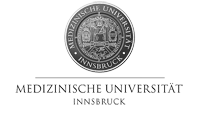|
|
 |
1st department of Paeditrics, Masaryk University, Brno, Czech Republic
The aim of this study is to evaluate the level of IgG antibodies against pertussis toxin (PT) in the file of vaccinated children in relation to the recent changes of the vaccination scheme in the Czech Republic.
Methods: In 122 vaccinated children born 2000-2006 the level of IgG antibodies against PT was examined using the ELISA method. These children received at least 3 doses of the vaccine more than 4 weeks prior to the blood collection. The used type of the vaccine and the period of time after the last vaccination were observed. 72 children within 12 months after the last vaccination were divided into two groups according to the used type of the vaccine (cellular, acellular). Furthermore, 74 children who received the cellular vaccine were divided into three groups (1-12 months, 12-35 months, 36-42 months after the last vaccination).The data was statistically analysed using Fischer exact test and Pearson Chi- square test.
Results: Only 18
children out of 48 vaccinated by the acellular vaccine 1-12 month prior to
the blood collection had positive levels of IgG antibodies against PT. In
the group of children vaccinated by cellular vaccine under the same
conditions 10 out of 24 had positive levels of antibodies. The difference
between these two groups is not statistically significant (OD 1.19). The
positive levels of IgG antibodies against PT in children 12-35 and 36-42
months after the last vaccination with cellular vaccine (31 and 19) were
noticed only in 7 and 2 children, respectively. The difference between these
two groups and the group 1-12 months after the vaccination with the cellular
vaccine is statistically significant (OD3.25, p=0.005), which means the
longer the period of time after the vaccination, the more often negative the
antibodies are.
In the whole file of 122 children, whose sera were examined 1-42 month after
at least 3 doses of vaccination, only 37 children (30%) had positive levels
of antibodies against PT. Despite the regular vaccination, 5 cases of
pertussis were diagnosed (according to the WHO definition of pertussis).
Conclusion: Children in the Czech Republic, despite the high vaccination coverage, have low levels of IgG antibodies against pertussis. It seems so far that vaccine-induced immunity after the cellular and the acellular vaccine is equal. However, it is essential to continue the study and obtain sera of children vaccinated with the acellular vaccine after a longer period of time. Because of the increasing incidence of pertussis in the Czech Republic mainly in children at the age of 9-14 (the levels of antibodies decline rapidly after the vaccination) it would be rewarding to consider, similarly as in some other countries, the possibility of a booster immunization with the acellular vaccine at this age.
